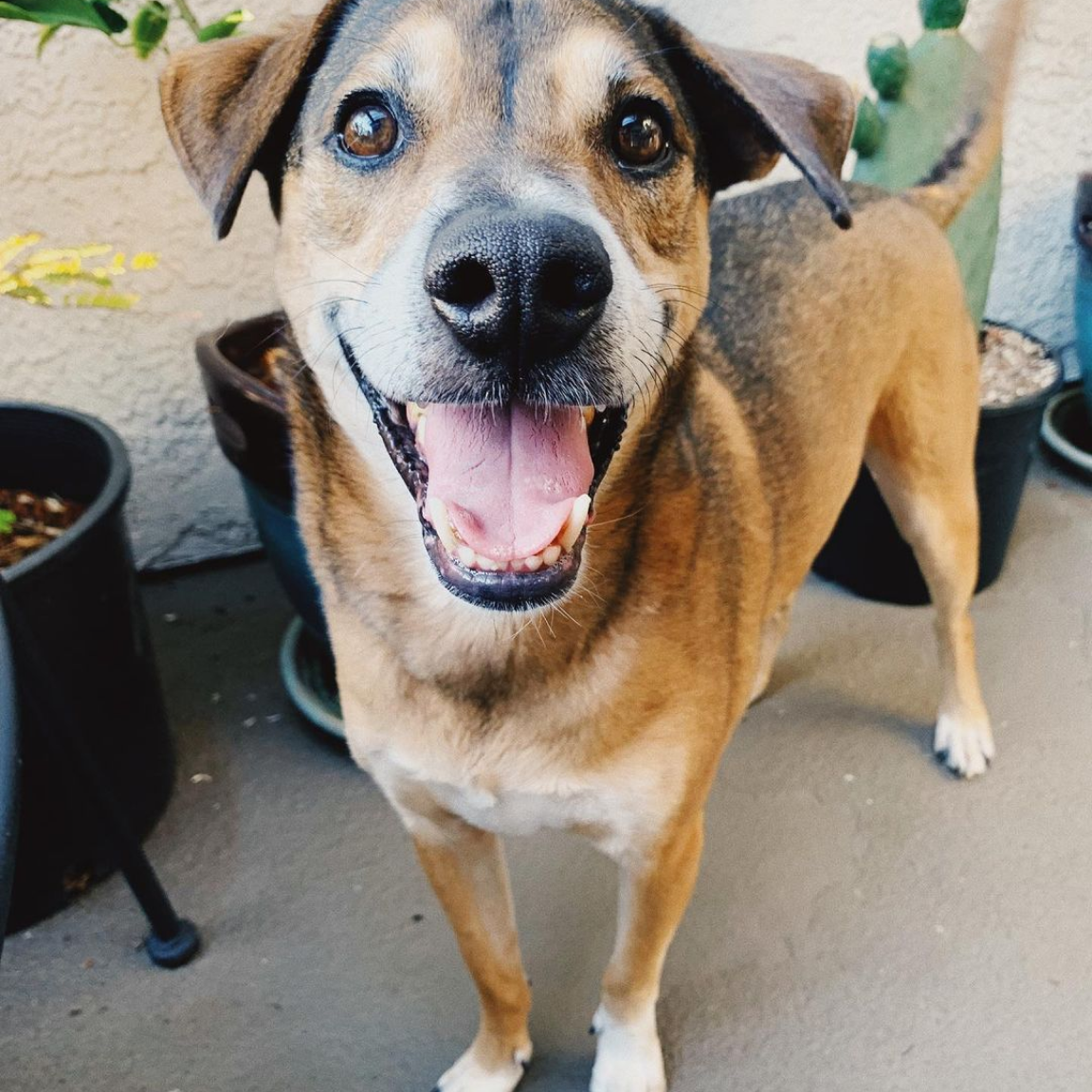
Reasons Your Dog Is Coughing & What to Do About It
Information from: Tiffany Ruiz Dasilva, VMD, cVMA | Professional Services Veterinarian, Wild Earth
Summary
-
Occasional dog coughing is normal, but persistent, unusual, or severe coughing can indicate underlying health issues.
-
Common causes include respiratory infections (kennel cough, bronchitis, pneumonia), heart conditions, allergies, or tracheal collapse.
-
Noting cough type, frequency, and accompanying symptoms can help your vet identify the cause.
-
Proper diagnosis often involves physical exams, X-rays, blood tests, and possibly advanced imaging or fluid analysis.
-
Prevention through regular vaccinations, heartworm medication, and a clean environment can reduce the risk of coughing.
- If coughing lasts more than a few days or is accompanied by serious symptoms, consult a veterinarian immediately.
Dogs cough now and then, and most of the time, it’s nothing to worry about. A tickle in the throat, a bit of dust, or even excitement can bring on a little cough. But when coughing becomes frequent, sounds different, or lasts longer than usual, it could point to something more serious. Understanding the different types of coughs and what causes them can help you take the right steps to keep your dog healthy.
In this guide, we’ll break down the common reasons dogs cough, how to recognize different cough sounds, and when it’s time to visit the vet.
Types of Coughs in Dogs
Not all coughs sound the same, and each one can tell a different story. Paying attention to how your dog’s cough sounds and when it happens can offer important clues for diagnosis.
Hacking Cough
A dry, repetitive cough that sounds like your dog is trying to clear their throat is known as a hacking cough. It’s one of the most common types and is often linked to kennel cough, bronchitis, or general respiratory irritation. You might notice it gets worse during activity.
While it may seem mild at first, a hacking cough that sticks around for several days should be checked by a vet.
Honking Cough
This loud, goose-like cough is a classic sign of tracheal issues, especially in smaller breeds like Yorkies and Pomeranians. Tracheal collapse is often the cause, and the cough may be triggered by excitement, pulling on a collar, or pressure on the neck. Honking coughs should always be evaluated by a vet, as severe cases may require more advanced treatment.
Wet Cough
A wet or phlegmy cough often suggests fluid in the lungs. It’s usually a symptom of something more serious, like pneumonia or congestive heart failure. You might also notice your dog seems tired or struggles with breathing. If your dog has a wet cough, especially when paired with fatigue, don’t wait; get them to the vet as soon as possible.
Gagging Cough
Gagging coughs often sound like choking or dry heaving. They can be caused by something stuck in the throat or airway inflammation. Kennel cough or a foreign object are common culprits. If the gagging is sudden or intense, treat it like an emergency and seek help right away.
Why Observation Matters
The sound of a cough is just part of the picture. Tracking when and how often your dog coughs and noting any other symptoms can really help your vet figure out what’s going on. Watch for patterns like coughing after rest, during activity, or only at night. Look for signs like loss of energy, appetite changes, nasal discharge, or labored breathing.
Common Causes of Dog Coughing
From mild irritations to more serious conditions, there are many reasons your dog might be coughing. Here’s a closer look at the most common causes.
Respiratory Conditions
Respiratory issues are one of the top causes of dog coughing. These can range from contagious illnesses to more chronic problems.
- Kennel cough is a highly contagious condition often picked up in kennels or dog parks. It usually causes a dry, hacking cough and may include gagging. Some dogs recover without treatment, but others need antibiotics to feel better.
- Bronchitis causes a persistent, dry cough that worsens with exercise or excitement. Left untreated, it can become a long-term issue. Anti-inflammatory medications can help manage the condition.
- Pneumonia results in a wet cough, often paired with fever, fatigue, and labored breathing. It tends to affect puppies and senior dogs more severely and needs immediate veterinary care.
- Tracheal collapse affects small breeds and leads to a honking cough. It happens when the airway becomes weak and can get worse over time. In advanced cases, surgery might be needed.
Heart Conditions
Heart issues can also cause coughing, especially when fluid builds up in the lungs.
- Congestive heart failure can cause coughing that worsens after lying down, along with fatigue, rapid breathing, or a swollen belly. This condition needs timely treatment to prevent complications.
- Heartworm disease is caused by parasites in the heart and lungs. Dogs with heartworms may cough, seem tired, or have trouble breathing. The best way to avoid this is through monthly heartworm prevention.
Allergies
Dogs can have allergies just like people, and one symptom can be mild, dry coughing. Common triggers include dust, smoke, mold, or pollen. You might also notice sneezing, watery eyes, or itchy skin. Seasonal changes or specific environments can play a role. Managing allergies may involve antihistamines, air purifiers, and limiting exposure to known irritants.
Other Causes
Some coughs come from less common sources, but they still require attention.
Foreign objects, like grass or small toys, can get stuck in a dog’s throat and cause sudden gagging or coughing. If this happens, especially out of nowhere, seek emergency care immediately.
Cancer in the lungs or airways may cause chronic coughing, especially if combined with weight loss or lethargy. Imaging and a biopsy may be needed for diagnosis.
Stress or anxiety can also lead to coughing. You might see it alongside panting, whining, or pacing. In these cases, calming routines or supplements may help.
When to See a Vet
It’s not always easy to tell if a cough is serious. But some signs should never be ignored. If your dog’s cough lasts more than a few days or is paired with breathing trouble, fever, or lethargy, it’s time to call your vet.
Other red flags include coughing up blood, nasal discharge, or coughing that worsens at night or after lying down. When in doubt, getting a professional opinion is always the safest move.
Diagnosis and Treatment
Your vet will use a mix of physical exams and diagnostic tools to figure out what’s causing the cough. The goal is to get to the root of the problem and choose the right treatment path.
Veterinary Diagnosis
Your vet might start by listening to your dog’s chest and asking about symptoms and recent exposure to other dogs. Depending on what they find, they may recommend X-rays to check the lungs, blood tests to spot infection or organ issues, heartworm screening, or an endoscopy to look at the airway. In some cases, fluid samples from the lungs may also be tested.
Treatment Options
The treatment plan depends entirely on the cause. Bacterial infections may be treated with antibiotics, while heart issues could require medications to manage fluid buildup and strengthen the heart. For bronchitis or airway inflammation, anti-inflammatories and bronchodilators may be used. Allergies might be treated with antihistamines or corticosteroids.
In more serious cases, like tumors, surgery or chemotherapy may be needed. Cough suppressants are sometimes used, but only when the cough isn’t helping to clear something from the lungs.
How to Prevent Dog Coughing
While not every cough is preventable, a few good habits can lower the risk. Make sure your dog’s vaccinations are up to date, especially for kennel cough and canine flu. Use monthly heartworm preventatives year-round, and keep your home clean and smoke-free.
Washing bedding regularly, vacuuming often, and using air purifiers can help sensitive dogs breathe easier. A little effort goes a long way in protecting your dog’s respiratory health.
Key Takeaways
Coughing in dogs isn’t always a red flag, but it can be. Understanding the sound and pattern of your dog’s cough helps catch problems early.
Whether the cause is an infection, heart condition, allergy, or even stress, paying close attention and acting quickly can make all the difference. When something seems off, trust your instincts and check in with your vet.






































